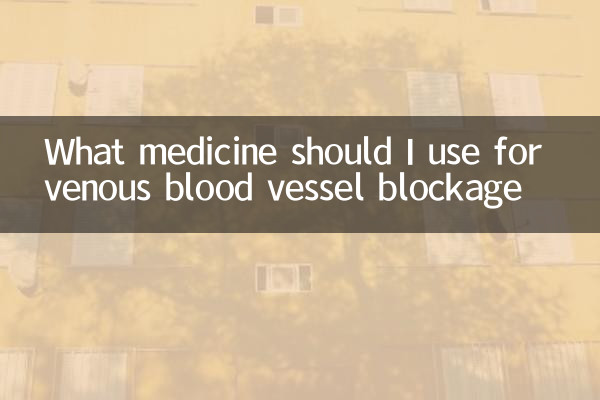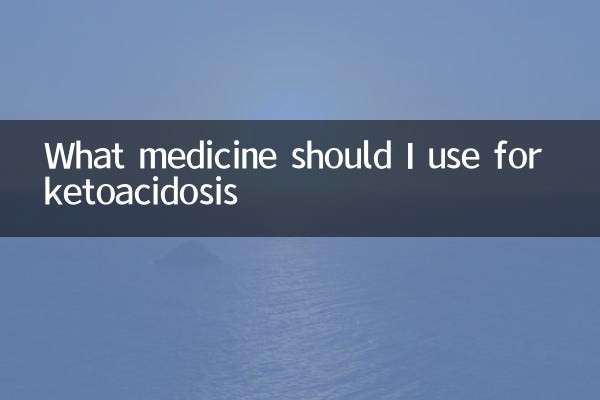What medicine should I use for venous blood vessel blockage
Vascular blockage is a common vascular disease that can be caused by thrombosis, inflammation, or other factors. Timely medication is the key to treatment. This article will combine popular topics and hot contents across the network for the past 10 days to introduce you in detail the drug treatment plan for venous vascular blockage and provide structured data for reference.
1. Common causes of venous blood vessel blockage

Vascular blockage is usually caused by the following reasons:
| reason | describe |
|---|---|
| Deep venous thrombosis (DVT) | Blood coagulates in deep veins, causing blood vessel blockage |
| Pheitis | Inflammation of the venous wall, which may be accompanied by thrombosis |
| Trauma or surgery | Blood clots formed after blood vessel damage |
| Long-term bed rest | Slow blood flow leads to increased risk of thrombosis |
2. Common drugs for venous blood vessel blockage
Here is a list of commonly used drugs for treating venous blood vessel blockage:
| Drug Category | Representative medicine | Mechanism of action | Things to note |
|---|---|---|---|
| Anticoagulant drugs | Warfarin, heparin, rivaroxaban | Prevent blood clotting and prevent thrombosis | Coagulation function needs to be monitored regularly |
| Thrombolytic drugs | Alteplase, urokinase | Dissolve the formed thrombus | Need to be used under hospital supervision |
| Antiplatelet drugs | Aspirin, clopidogrel | Prevent platelet aggregation | Pay attention to bleeding risks when using long-term use |
| Intravenous active drugs | Hexalonatrinosine sodium, diosamine | Improve venous tone and relieve symptoms | Can be used as an auxiliary treatment |
3. Selection of drug treatment plan
Treatment options vary depending on the severity and cause of venous vascular blockage:
1.Acute phase treatment: Usually, hospitalization is required, and rapid anticoagulation is used with heparin or low molecular weight heparin, and thrombolytic drugs are added if necessary.
2.Maintenance treatment: Continue to take oral anticoagulants for 3-6 months after discharge, such as warfarin or new oral anticoagulants.
3.Long-term prevention:For high-risk patients, long-term antiplatelet medication may be required.
4. Recent popular research progress
Based on medical hotspots in the past 10 days, here are new advances related to treatment for venous vascular blockage:
| field of study | New discoveries | significance |
|---|---|---|
| New anticoagulant drugs | A variety of new drugs targeting coagulation factors enter clinical trials | May provide safer and more effective treatment options |
| Gene therapy | Explore gene editing technology to prevent thrombosis | Bring hope to patients with hereditary thrombosis tendencies |
| nano technology | Developing a nanodrug delivery system that targets thrombosis | Increase the concentration of drugs in the thrombus site and reduce side effects |
5. Precautions for medication use
1.Strictly follow the doctor's instructions: The dosage of anticoagulant drugs needs to be adjusted individually and cannot be increased or decreased by itself.
2.Regular review: When using warfarin, INR value must be monitored regularly, and other drugs should also pay attention to relevant indicators.
3.Beware of bleeding: If you experience abnormal bleeding, bruising and other symptoms, you should seek medical treatment in time.
4.Drug interactions: Many foods and drugs will affect the anticoagulant effect, and special attention should be paid during the medication use.
6. Adjuvant treatment methods
In addition to drug treatment, the following measures can also help improve venous blood vessel blockage:
| method | effect | Applicable |
|---|---|---|
| Elastic stockings | Promote venous return and prevent post-thrombotic syndrome | Patients with lower limb venous thrombosis |
| Exercise therapy | Improve blood circulation | After the condition is stable |
| Interventional treatment | Mechanical bolt removal or filter placement | When the drug is not effective |
7. Summary
Drug treatment for intravenous vascular blockage requires the formulation of plans based on individual conditions, from acute anticoagulation and thrombolysis to long-term prevention and treatment, all require the guidance of professional doctors. With the development of medicine, new treatments and drugs continue to emerge, providing patients with more choices. The most important thing is to detect early, treat it in a timely manner, and adhere to standard medication plans to achieve the best treatment effect.
The content of this article combines recent medical hot topics and clinical guidelines, but be sure to consult a professional doctor for specific use of medication and do not take medication by yourself. Vascular health is related to the functions of all organs in the body, and deserves our high attention and scientific management.

check the details

check the details